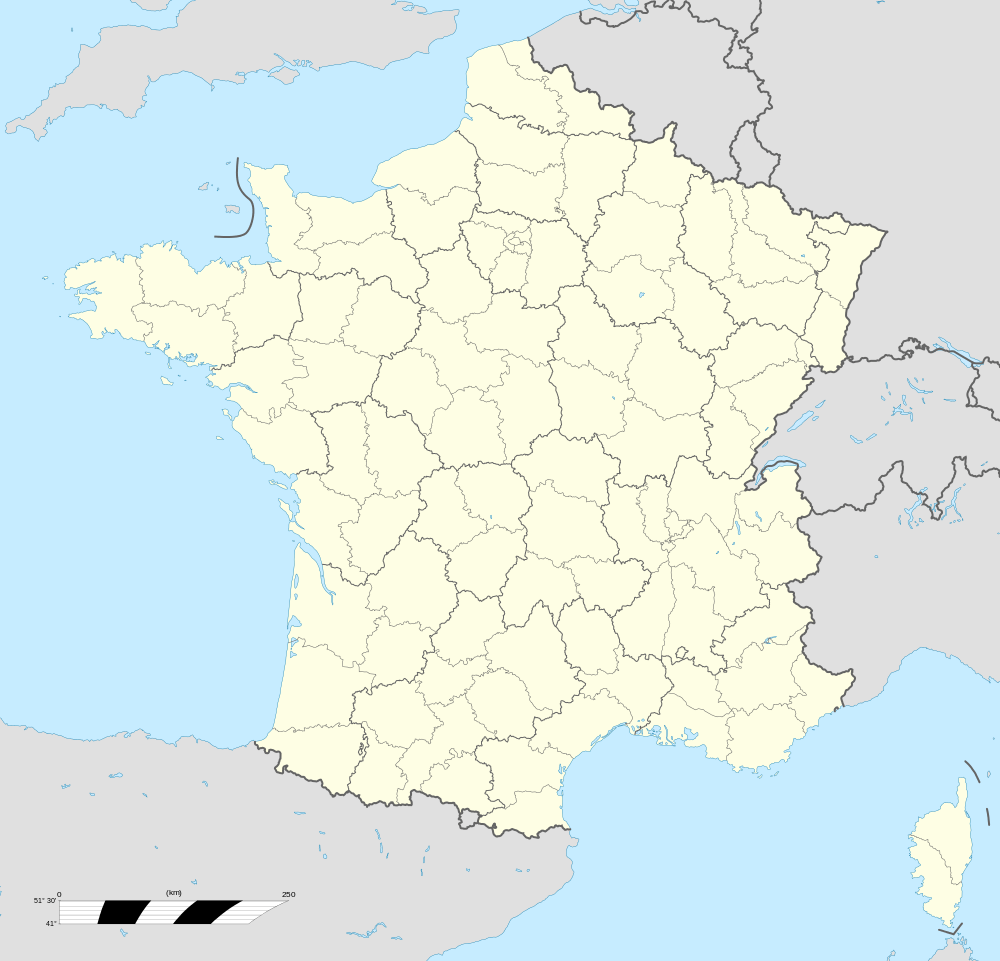Plœuc-sur-Lié
| Plœuc-sur-Lié Ploheg | ||
|---|---|---|
| ||
 Plœuc-sur-Lié | ||
|
Location within Brittany region  Plœuc-sur-Lié | ||
| Coordinates: 48°20′50″N 2°45′23″W / 48.3472°N 2.7564°WCoordinates: 48°20′50″N 2°45′23″W / 48.3472°N 2.7564°W | ||
| Country | France | |
| Region | Brittany | |
| Department | Côtes-d'Armor | |
| Arrondissement | Saint-Brieuc | |
| Canton | Plœuc-sur-Lié | |
| Intercommunality | Centre Armor Puissance 4 | |
| Government | ||
| • Mayor (2014–2020) | Thibaud Guignard | |
| Area1 | 44.45 km2 (17.16 sq mi) | |
| Population (2008)2 | 3,224 | |
| • Density | 73/km2 (190/sq mi) | |
| INSEE/Postal code | 22203 / 22150 | |
| Elevation | 147–270 m (482–886 ft) | |
|
1 French Land Register data, which excludes lakes, ponds, glaciers > 1 km² (0.386 sq mi or 247 acres) and river estuaries. 2 Population without double counting: residents of multiple communes (e.g., students and military personnel) only counted once. | ||
Plœuc-sur-Lié (Breton: Ploheg) is a commune in the Côtes-d'Armor department in Brittany in northwestern France.
Population
| Historical population | ||
|---|---|---|
| Year | Pop. | ±% |
| 1962 | 2,904 | — |
| 1968 | 2,932 | +1.0% |
| 1975 | 2,901 | −1.1% |
| 1982 | 3,009 | +3.7% |
| 1990 | 2,932 | −2.6% |
| 1999 | 2,937 | +0.2% |
| 2008 | 3,224 | +9.8% |
Inhabitants of Plœuc-sur-Lié are called plœucois in French.
History
The oldest antiquity may be the menhir of Bayo. In 1643, as a reward for services rendered at the siege of La Rochelle (1627-1628), King Louis XIV granted Sebastian de Ploeuc the right to hold four fairs a year and also a weekly market. In 1664, the de Ploeuc family sold its lands to the La Rivières, whose coat of arms can still be seen on the Moulien de la Corbière. The Count de La Rivière was the ancestor of Lafayette, who sold his estates at Ploeuc to cover the expenses which fell on him as a result of the American War of Independence. This war also caused great harm to the local linen industry.
Today, Plœuc-sur-Lié retains its rural character, with a prosperous agriculture which is largely from potato growing. Apart from the Bayo menhir, there are many restored old houses, windmills, and nearby forests.
See also
References
External links
| Wikimedia Commons has media related to Plœuc-sur-Lié. |
.svg.png)